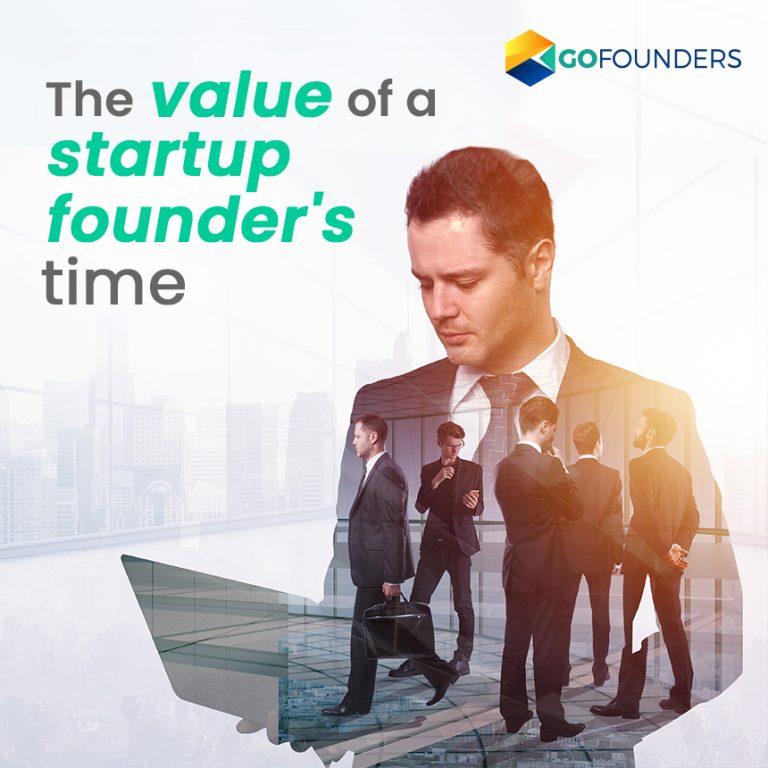
Time is very precious. Many feel that the cheapest currency you have is time, but the actual scenario is the opposite. As a founder, you have plenty of opportunities to start a business that means the founder’s opportunity is higher than anything and anyone else involved in the startup ecosystem.
Founders won’t start a company based on the ROI analysis. But they start a company as they believe in something. Founders start reselling a product even without building a financial year. The only guarantee for starting with a blank paper is that a new company will cost the founder money.
The choice to join a well-established company and a startup company has a different financial picture. Founders can become super-rich at the risk of being broke. Here is how founders think about their valuable time.
1. Founder’s ROI calculation:
Founders should analyze the ROI at the end of the journey to understand your entire career’s cash flow. People work well after 57 years of age if you complete your graduate college at 22, but in reality, the high growth startups consume much energy for the startups you are doing after 5 meaningful attempts.
2. Exits matters:
The next important thing is exits matter. They consider your returns and the likely hood of your customers who support you. The more companies you work with won’t return the capital, and the probability of people supporting your next venture is low.
The liquidity events at the start of your entrepreneurial career make a huge difference. Even your first company exit sale of $250k affects over the years. They believe that a dollar today is more worth than a dollar tomorrow.
Remember that the chance of an exit is minimal. The probability of success will be in the single digits even if the founders think they have better chances in their hands.
3. Compensation is an added advantage:
The second aspect of an ROI is your salary. It’s hard to make a meaningful and high salary in the early stages. If you need to do so, build the companies that either cash flow in the first year or a company that consistently successfully raises investor capital.
Hiring other persons and raising salaries seems like a brainer until your company fails until you realize you don’t have enough money to start a new venture. Ignoring yourself and giving raise for your team is a justifiable thing at the time always.
Make sure that not all founders will compensate for the same amount. It’s essential to create a compensation plan early in the company history as founders take different company roles. Your compensation should match the role you are doing within the company.
4. Make a new idea before you quit:
Your salary reaches zero every time you start over. Create a great way to give you a running head start if you want consistent flow without successful exits. Takes time to create new companies and has to spend particular hours on reselling on an initial product, which may or may not gain success.
The opportunity will be wasted if you rush to create a process as you run out of personal cash. You can save more time to have ideas in between by saving more cash.
5. Careful at investing your cash:
Already, founders invest a lot more upfront. The time that founders are spending without salary is costing them even people don’t translate efforts into cash. It is risky to invest their cash.
Treat your investing cash like any other investor’s money. Value the cash that you put into the business and create a standard path.
6. All income will not be equal:
The income you get from a job, and a company is not equal. The work required to save money while running a company will be more challenging. It will be best to carry the expectations of everyone involved along working many hours as a founder.
If you compare a job and starting a company, the hourly rate difference won’t matter. Instead, have a look at your savings per hour.
7. Nothing wrong with going big:
Many entrepreneurs face hurdles whenever they step up to the plate. And that determination level takes more energy, personal commitment, and capital.
It’s challenging to build a billion-dollar company. It will probably take 49 months even if you raise money and sell a company or make it public.
8. You can’t calculate reputation:
The numbers on a spreadsheet will be helpful, but they are irrelevant for the startup currency you have: your reputation. It isn’t easy to positively impact everyone involved, even if the company you build won’t create liquidity events.



Emambu Doris
3 years ago
Mahmoud saeed Adam
3 years ago